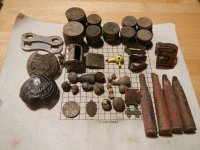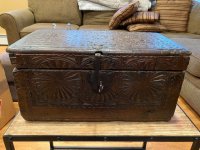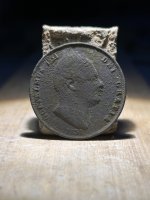L.C. BAKER
Silver Member
my apologies, I do not want to high jack this thread with my story. i just wanted to add a short version of it to this awesome thread. Next story please, I can't wait to read it.
I do not want to high jack this thread with my story. i just wanted to add a short version of it to this awesome thread. Next story please, I can't wait to read it.
L.C. Baker
 I do not want to high jack this thread with my story. i just wanted to add a short version of it to this awesome thread. Next story please, I can't wait to read it.
I do not want to high jack this thread with my story. i just wanted to add a short version of it to this awesome thread. Next story please, I can't wait to read it.L.C. Baker







